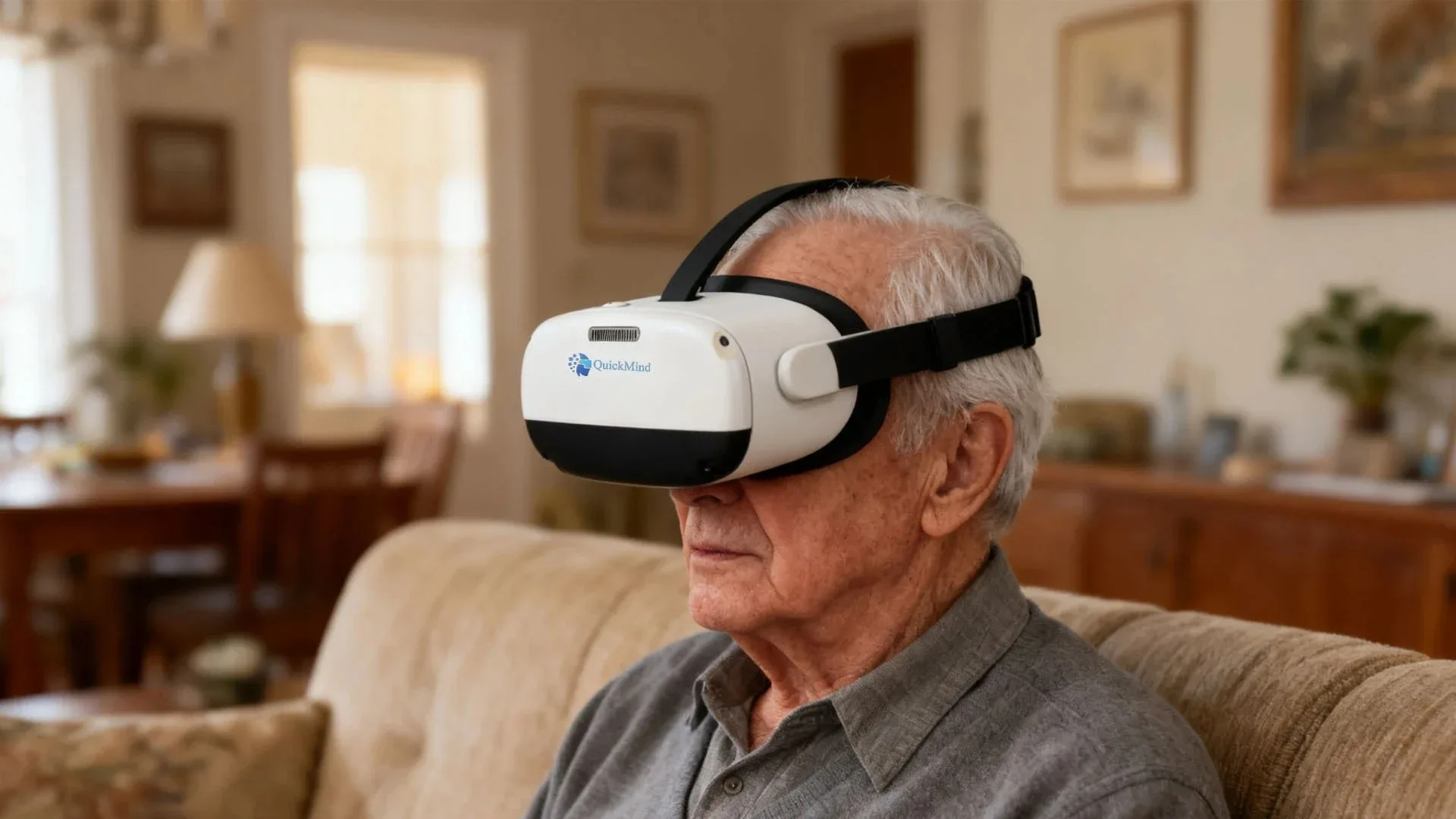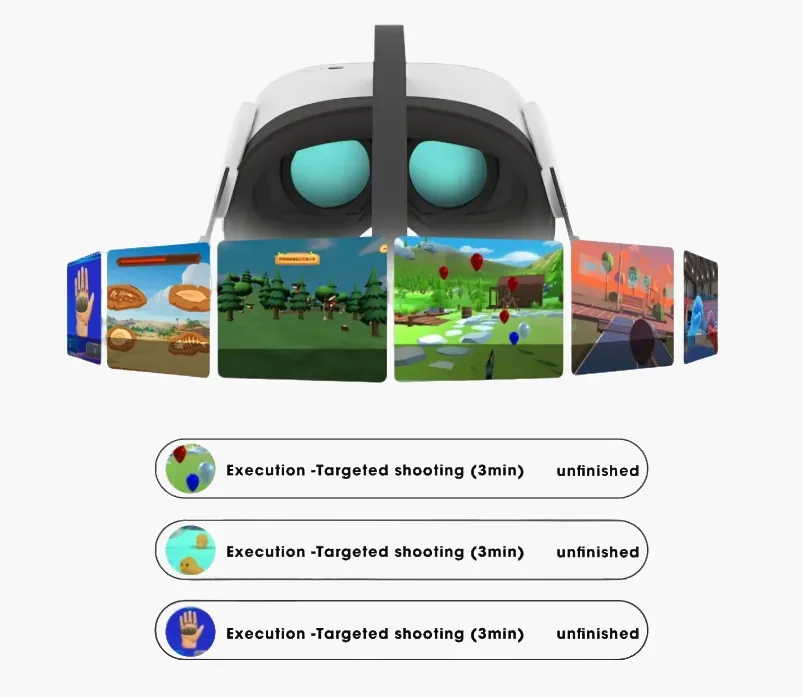
Progressive studies confirms that virtual simulation modality can substantially advance the welfare of clients diagnosed with brain function deterioration. By placing them to calming environments, VR grants a unique avenue for mental activation, psychological balance, and community engagement. Many inquiries have confirmed that VR therapy can diminish fretfulness, stress, and melancholy in dementia sufferers while also strengthening their retention, engagement, and expressive competencies.
- VR grants clients with dementia to retrace fond remembrances through dynamic impressions.
- Furthermore, it can allocate a protected and facilitative space for group interaction, building a consciousness of relationship and adherence.
- Professionals think that VR therapy has the promise to reinvent dementia service by offering new and novel techniques to address the multifaceted concerns faced by persons experiencing this affliction.
Cutting-Edge Digital Interventions for Alzheimer's Disease
Increasing online approaches are showing promise in the province of mental improvement for individuals living with the Alzheimer's condition. These software harness digital innovation to activate brain performance and possibly curtail the advancement of the affliction. Game-based practices, personalized recommendations, and psychological training are some models of processes being analyzed in this developing discipline. While examinations are being conducted, digital therapeutics enable a complementary means for augmenting the conditions of those managing Alzheimer's dementia.Navigating Reality Through Virtual Landscapes: A Novel Approach to Alzheimer's Treatment
Pertaining to patients managing Alzheimer health issue, the ongoing degradation of memory and thinking skills can substantially influence their power to relate with the external world. This devastating disorder often produces in separateness, agitation, and a lessened self-concept. Fresh innovations in virtual reality technology deliver a innovative means to mitigate these issues by formulating immersive atmospheres that can encourage the brain and invigorate cognitive function.
Virtual scenario worlds crafted specifically for Alzheimer's affected people can immerse them in acquainted venues, such as their former home or a chosen recreational spot, awakening positive memories and reducing anxiety. Through interactive exertions, these virtual settings can also test cognitive abilities like mind retention, concentration, and judgment.
The prospects of virtual reality in Alzheimer's intervention are manifold. Early examinations have revealed optimistic results, with cases showing improvements in cognitive operation, mood, and overall quality of life. As this technology moves forward, it holds the key to changing the way we approach Alzheimer's disease, making available a new pathway for treatment and strengthening.
Digital Memory Therapy for Alzheimer's Disease
Reminiscence therapy is a traditional technique used to increase cognitive function and affective health in individuals with Alzheimer's disease. This historic form of therapy involves eliciting patients to narrate past experiences, often through talks. However, a pioneering approach is emerging: VR-mediated reminiscence therapy.
This immersive solution utilizes virtual reality headsets to shift patients in lifelike environments that arouse memories from their past. By recapturing these simulated settings, individuals with Alzheimer's can interact with their past in a influential way.
Harnessing VR to Improve Cognitive Abilities in Dementia
Virtual reality (VR) is emerging as a prospective device in the fight against dementia, providing state-of-the-art ways to engage memory and cognition. By designing immersive simulations, VR can enable individuals with dementia revisit memories, take part in meaningful activities, and advance cognitive faculties. Studies have established that VR interventions can effect important improvements in memory recall, attention, and dimensional awareness. Moreover, VR provides a reliable and positive space for individuals with dementia to engage, reducing feelings of isolation and anxiety.
- Additionally, VR can be adjusted to individual needs and preferences, allowing increased levels of collaboration.
- Even with the opportunities of VR, more research is needed to fully understand its long-term performance in dementia care.
Memory Revival and Social Renewal: VR's Role in Alzheimer's Community Engagement
Interactive synthetic settings is emerging as a revolutionary resource in the branch of brain degenerative illnesses. By producing immersive and responsive realities, VR has the prospect to renew memories, foster social interaction, and enhance the overall quality of life for patients experiencing Alzheimer's. Especially an important impressive aspects of VR is its ability to relocate users to beloved areas and occasions from their past. Whether it's a ramble through a childhood home or a depiction of a beloved holiday, these virtual adventures can conjure happy memories and bolster cognitive capacity. Furthermore, VR can advance social interaction by joining individuals with others who share similar memories. This can be particularly beneficial Alzheimer’s disease for people with Alzheimer's who may find it difficult with traditional social participation. By offering a safe and interactive virtual space, VR can alleviate feelings of isolation and loneliness, which are common among individuals living with Alzheimer's. Overall, VR holds immense capability for reshaping the lives of people with Alzheimer's by reawakening memories, recovering connections, and boosting their quality of life. As technology goes on expand, we can expect even more groundbreaking applications of VR in the field of dementia care.Applying Cognitive Training: Utilizing VR for Alzheimer's Symptom Management
VR technology is rapidly emerging as a state-of-the-art tool in the realm of cognitive training, particularly for individuals managing Alzheimer's disease. By immersing patients in interactive and engaging virtual environments, VR-based interventions can advance cognitive functions such as memory, attention, and problem-solving. These games often incorporate elements of storytelling, exploration, and social interaction, making the training process significantly appealing. Studies have shown that VR-based cognitive training can lead to substantial improvements in cognitive performance, theoretically delaying the progression of Alzheimer's symptoms. Moreover, VR provides a safe and controlled environment for patients to practice new skills and build their confidence.
- Gamification in VR training can make it extremely immersive and fun for individuals with cognitive impairments.
- VR simulations can offer accurate scenarios that provoke and motivate cognitive functions.
- Personalized VR experiences can cater to custom requirements and techniques.
Virtual Reality as a Renewed Opportunity for Dementia Patients
Engaging replicated spaces offer a unique and encouraging avenue for persons suffering dementia. These solutions can simulate familiar environments, allowing those affected by cognitive decline to immerse in cherished memories and enhance a sense of contentment. By reducing the burdens of dementia, VR scenarios have the promise to refine quality of life for both clients and their helpers.
- Trials indicate that VR uses can favorably impact cognitive function, social well-being, and even movement abilities in individuals with dementia.
- Moreover, VR supplies a safe and structured environment for discovery, reducing the risk of discomfort.
- Likewise, VR can strengthen social connections by allowing individuals with dementia to interact in online activities with others.
Employing VR to Detect and Treat Alzheimer's Early
Alzheimer syndrome represents a challenging puzzle, often continuing unnoticed in its early stages. However, virtual reality (VR) is emerging as a advanced tool for initial identification. Through immersive platforms, VR can evaluate cognitive abilities in ways that traditional methods struggle to. This possibility allows for quick response strategies, potentially slowing disease progression and upgrading the quality of life for clients with Alzheimer's.
- Virtual reality technology offers secure and structured assessments of memory and attention.
- Personal VR platforms promote user engagement in cognitive enhancement practices.
- Computer-generated spaces provide social conditions for Alzheimer's clients to bond and mingle.
Enhancing Dementia Communication and Social Interaction Via VR
{In the realm of dementia care, innovative technologies are emerging to enhance the lives of people affected by dementia. Virtual reality (VR) is one such solution that holds immense possibility for narrowing social gaps and boosting communication with dementia clients through VR. By offering absorbing computer-generated environments, VR can animate cognitive function, reduce behavioral issues, and ultimately improve the overall well-being of people living with dementia.
VR experiences focused on dementia patient engagement can range from remembering therapy sessions that bring individuals into past familiar contexts, to interactive games that promote social interaction and cognitive development. Furthermore, VR has the aptitude to connect clients facing dementia with social networks, regardless of physical gaps, fostering a sense of inclusion.
- VR can assist in reducing agitation and anxiety by providing a calming and distracting environment.
- Examinations have shown that VR interventions can lead to improvements in cognitive function, mood, and social interaction in people affected by dementia.
- As technology grows in advance, we can expect even more innovative and {effective|beneficial|helpful|powerful|impactful|successful|productive|efficient
